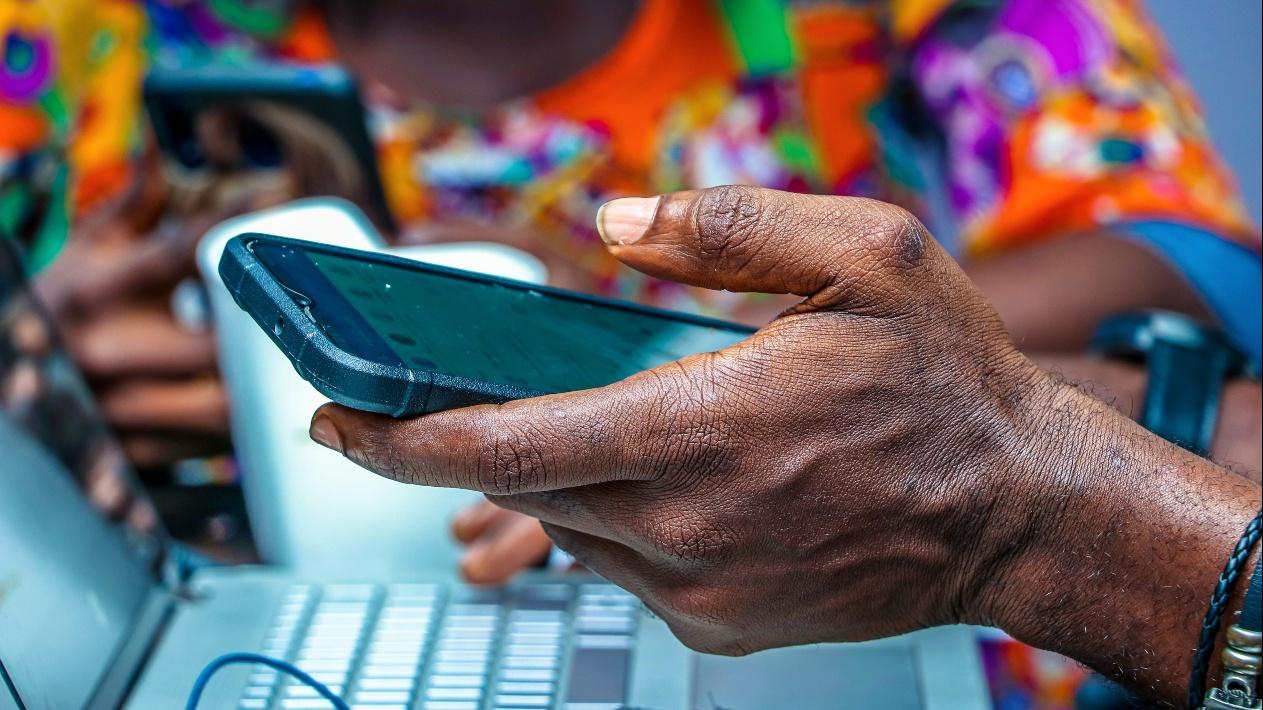The Chinese state is the poster child of using digital tools for domestic surveillance and censorship. But China is not the only country exporting digital technologies that can be used for authoritarian modes of governance. Reliant on importing new technologies, Africa risks becoming a passive consumer between rival Chinese and Western tech giants, each exporting their own brand of surveillance capitalism.
This article is part of the China-Africa Initiative series, based on a project at the LSE Firoz Lalji Institute for Africa, which explores the deepening economic interconnectedness of Africa and China. Please join the free LSE China-Africa conference on 28 September 2021 across FLIA social media platforms.
Digital technologies have provided governments worldwide with the tools to communicate with citizens, gauge popular sentiment, assess political risks, adjust policies and be more responsive. However, these same technologies have also provided autocratic and illiberal governments with new means of stifling dissent and blocking opposition, including greater avenues for control.
Surveillance, propaganda and disinformation are age-old strategies used by governments to stifle opposition and secure rule. But, as the digital age continues to permeate ever larger swathes of our lives, various technologies emerge that ‘make repression and control more pervasive, efficient, and subtle’.
Digital authoritarianism is challenging what has become known as digital democracy – whereby online platforms are increasing citizen participation in public life – to the extent it is often said to be ‘reshaping the power balance between democracies and autocracies’. It takes many forms such as online harassment, the dissemination of fake news, cyber-attacks, internet shutdowns and targeted surveillance through social media, artificial intelligence (AI) and facial recognition software.
Nowhere is the art of digital authoritarianism displayed in all its glory more so than in China. The Chinese state is the vanguard of using digital tools for domestic surveillance and censorship – from its Great Firewall to the use of CCTV cameras, data censorship, AI tracking and the implementation of its social credit system. Surveillance and censorship mechanisms are so omnipresent in Chinese society that it is almost invisible, making it the poster-child for a modern Orwellian state. Because of Beijing’s longstanding experience in using technology for censorship and surveillance, China is often the preferred supplier of tools and tricks for many countries in Asia, South America and, especially, Africa.
In recent years, Chinese tech firms (such as CloudWalk, Huawei, Hikvision and Yitu) have expanded their presence across Africa. At the time of writing, there are 266 Chinese technological initiatives on the African continent, ranging from 5G infrastructure to data centres, smart-cities, surveillance projects aimed at reducing crime and improving public safety, and education and skills development programmes. However, given Africa’s less than stellar track record with corruption and authoritarian rule, some regimes could use these technologies to implement extensive surveillance measures should they want to. Several African states – including Chad, Ethiopia, Zimbabwe, the Republic of Congo, Burundi, Togo, Guinea, Tanzania and Uganda – have employed digital authoritarian practices. Over the last two decades, internet shutdowns, online surveillance, social media taxes and imprisonment over anti-government posts have threatened basic freedoms and rights in many African nations, raising concerns about the future of democracy in the region. Huawei technicians helping Ugandan and Zambian forces to spy on political opponents is commonly cited as an example of how African regimes may use Chinese-exported surveillance technology for nefarious purposes.
What about the West?
Solely blaming China for the rise of digital authoritarianism in Africa is, however, somewhat foolhardy. Western nations, and particularly the US, have not hesitated to accuse China of exporting digital authoritarianism to the continent, overlooking the active role of African agency in acquiring Chinese surveillance technologies, while simultaneously failing to hold African regimes and leaders accountable.
By pointing fingers at China alone, western partisans run the ‘risk of oversimplifying a complex environment’ (Africa, after all, is not a country) and overlooking the roles of other distributors. These accusations are parochial and seem to imply that other serial offenders do not exist – offenders such as Russia and Saudi Arabia. Both these states make use of technology for repressive purposes and have influenced the use of authoritarian digital tactics and tools in Africa.
Moreover, the narrative that China is championing digital authoritarianism on the continent cannot be analysed without the miasma of hegemons waging tech wars and overarching struggles for dominance. By portraying China (and, by extension, its tech companies) as deviant actors that want to diminish digital democracy, the US places itself on higher moral ground. However, this moral edifice is one thinly lacquered – after all, they too spy on their citizens (thanks to Edward Snowden for enlightening us on extensive surveillance by US intelligence). Furthermore, countries such as France, the US, the UK, Israel and Germany also supply high-end surveillance technology, spyware, hacking software and censorship applications to fragile democracies and illiberal governments.
Let’s face it, if the US was really serious about restricting the spread of so-called ‘authoritarian technology’, then it should also impose comprehensive measures and restrictions on both democratic and autocratic producers.
Ultimately, the argument that China is bent on exporting its tech-governance model around the globe is as flawed and hypocritical as it is accusatory. Instead, like its Western counterparts, it is more likely that China, through its tech giants, is exporting aspects of its brand of surveillance capitalism. We must avoid becoming trapped by conveniently amnesiac arguments and generalisations that paint China as this digital baddy. It would be more prudent to assess African countries that import Chinese technology on a case-by-case basis to determine whether there really is a causal link (supported by evidence and data) that Chinese tech tools are being used for malignant purposes with the intent to replicate aspects of Beijing’s brand of tech-governance.
Looking at the bigger picture, the developing world, especially Africa, risks becoming passive consumers of technology developed by rival Western and Eastern companies. Because Africa’s infant tech industry lacks investment sufficiently significant to develop and serve domestic markets, African states will continue (throughout the long-term) to import high-end technology. Given the tussle for dominance between digital democracies and digital autocracies, Africa must, once more, avoid becoming a proxy for those with big sticks and deep pockets – albeit on a different kind of battlefield. Now more than ever, it is necessary that African policymakers and legislators advocate for ICT legislation and regulations to be transparent, accountable and open to reform. With the continent hoping to reap the benefits of the Fourth Industrial Revolution, Africans at a local, national and regional level must play an active role in ensuring that technology is designed, developed and implemented to meet African needs and advance African economies.
Photo by Jep Gambardella from Pexels.





